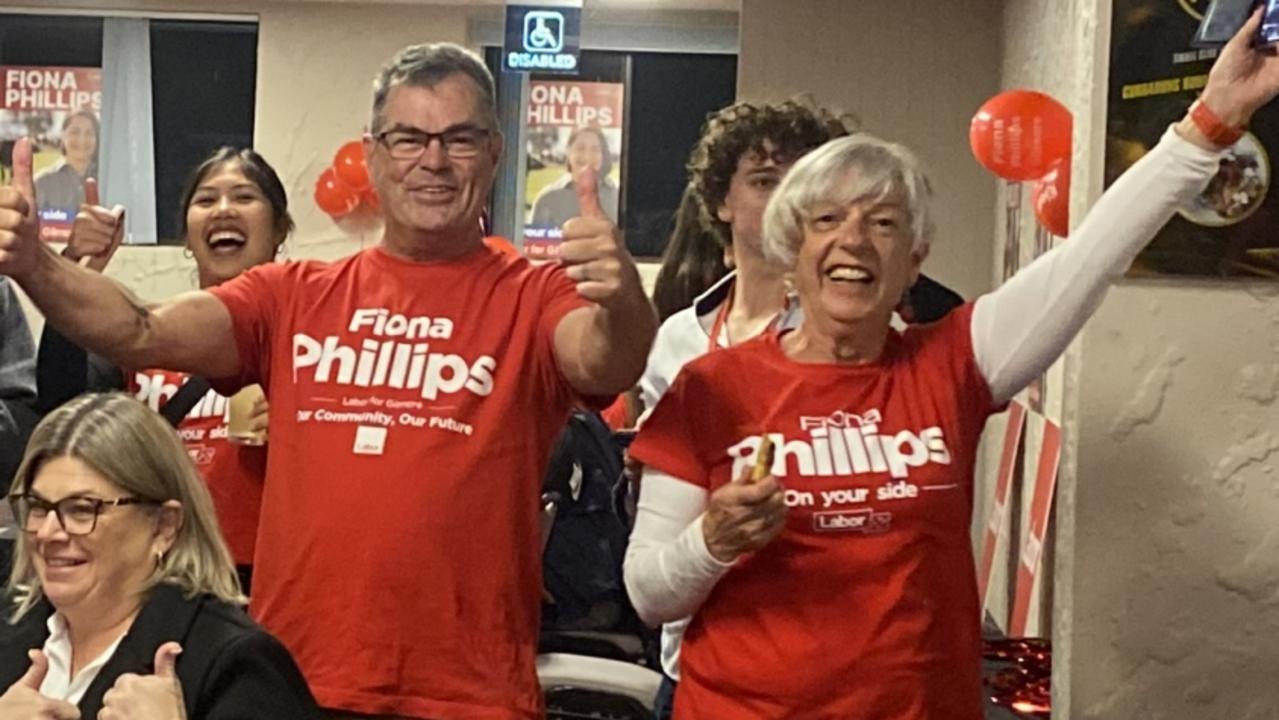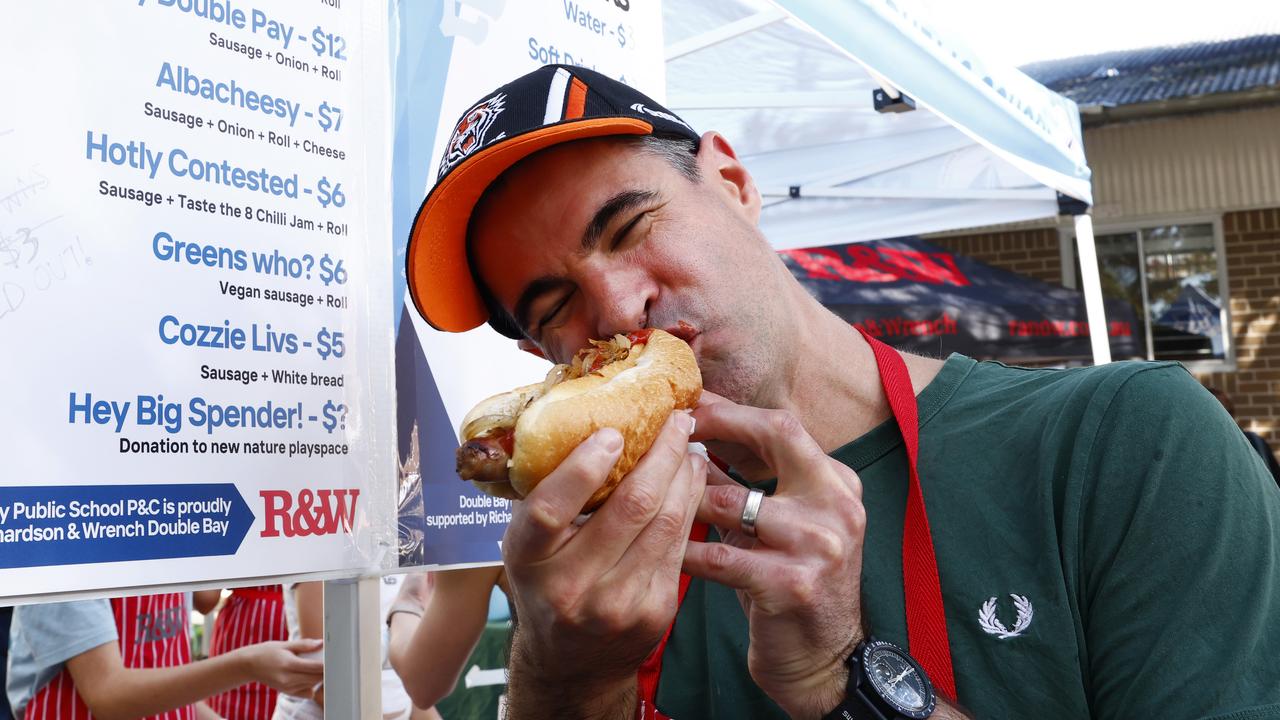Holocaust survivors call for calm amid ‘senseless’ anti-Semitism
Three Sydney holocaust survivors, united in denouncing the wave of “senseless” anti-Semitism gripping Australia, have issued an impassioned plea to cancel the hate.
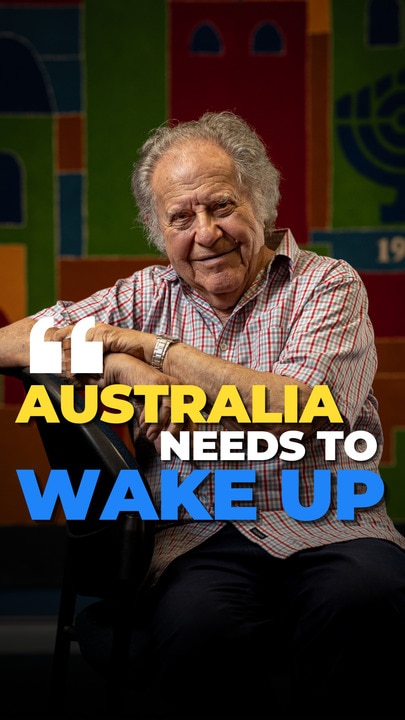
NSW
Don't miss out on the headlines from NSW. Followed categories will be added to My News.
Three Sydney holocaust survivors have united to denounce the wave of “senseless” anti-Semitism gripping Australia and have issued an impassioned plea to cancel the hate, warning: “We don’t want even a semblance of history repeating itself.”
The last witnesses to the horrors of the Nazi regime – all in their late 80s – have denounced the virulent hate against Israelis and Jews, that they fear is growing, and appealed for calm.
Survivor Ernie Friedlander OAM said the trio prayed the ceasefire deal struck between Israel and Hamas would temper the abusive attacks targeting the Jewish community in Sydney and Melbourne after the savage Hamas attacks of October 7, but added: “We remember the six million Jewish lives lost because of the kind of hatred we have seen in Sydney and Melbourne.
“If it is not stopped, we could see a small-scale repetition of the hatred against humanity which escalated against the Jews in Germany 1932 when Hitler gained power.”
“This goes against everything Australia stands for, a beautiful safe democracy which has given us a life away from persecution,” he said.
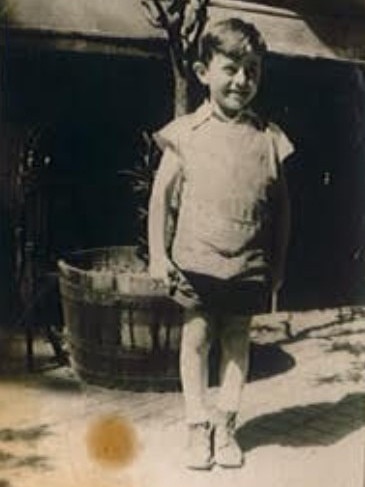
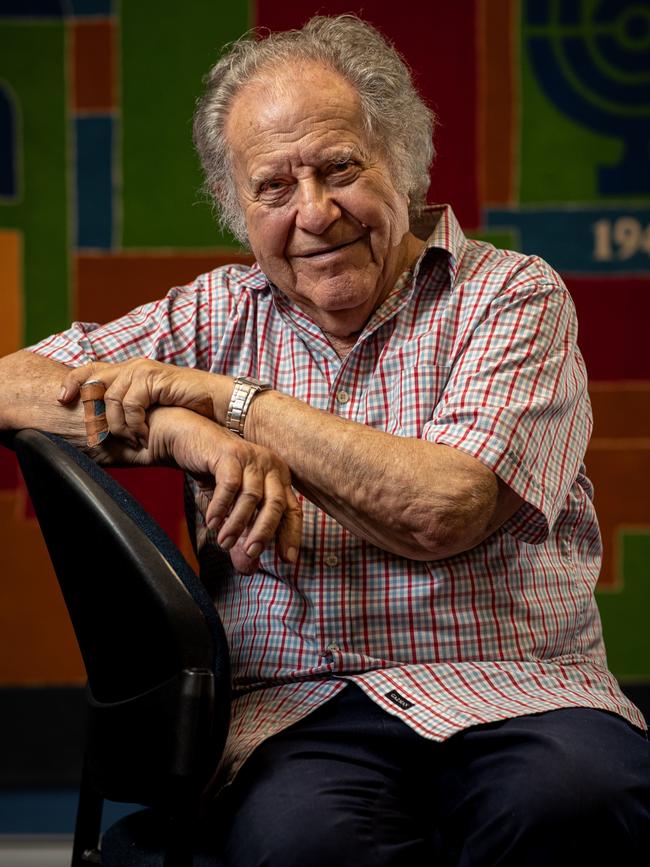
Vienna-born Mr Friedlander, 89, who lives in Maroubra in Sydney’s Eastern Suburbs with his family, survived as a Jew in Hungary thanks to the kindness of a German soldier who helped him and his mother escape during a 25km march to a train bound for Auschwitz in 1944.
“We were marching to the trains. On the way the German soldier overheard my mother talk to me in German. He indicated that he didn’t like the orders but had to obey,” he recalled.
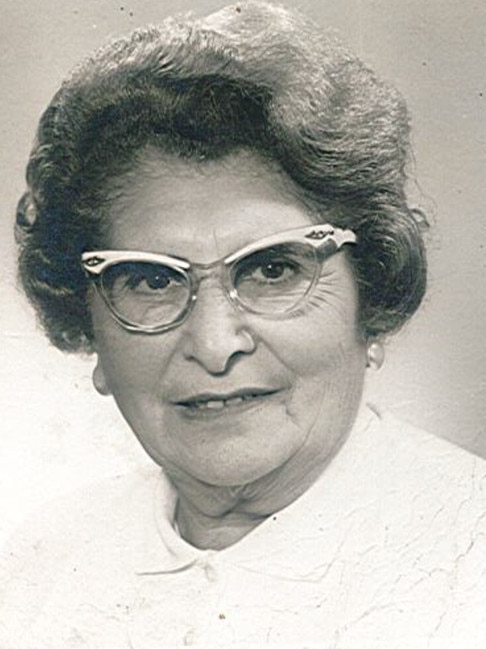
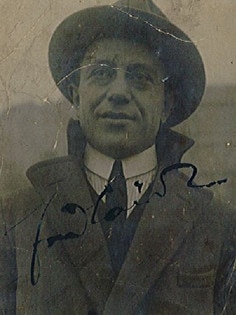
“After walking in cold mid-November conditions for over five hours, he again approached my mother, whispering. She then suggested I fix her shoe laces. As I did, she clamped her hand on my mouth and dragged me down a three-metre slope.
“We waited for everyone to pass and walked back to our home. We were totally exhausted and only got there in early hours of the morning – having to remove the yellow stars – as there was a curfew for Jews,” he said.
“I don’t hate Germans for what they did to my family, a good one among them saved us.
“We were rounded up again and sent to a Hungarian ghetto for Jews. My people were liberated by the Russians nine weeks later and my mother and I emigrated to Australia when I was 15,” he said.
“We waited for news of my father … it never came. All my family was murdered.
“Australians should not take out their anger for what’s going on in the Middle East on the streets of Australia.
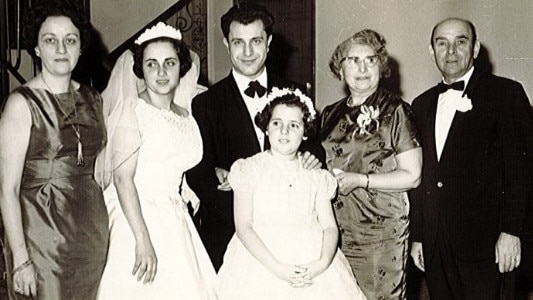
“A swastika on a synagogue, the burning down of a synagogue, the anti-Israel graffiti – what’s it all going to achieve? It’s all senseless and achieves nothing.
“The pro-Palestinian protests in the CBD – they’re divisive and breed hate.
“We must replace darkness with light. Australians need to wake up and take responsibility for their actions and stop the hate.”
The plea coincides with the 80th commemoration of the liberation of Auschwitz-Birkenau, when Sydney’s Jewish Community will host a commemorative event two days after its liberation on January 27, 1945.
Auschwitz-Birkenau concentration and extermination camp in occupied Poland was liberated by the Soviet Red Army during the Vistula-Oder Offensive.
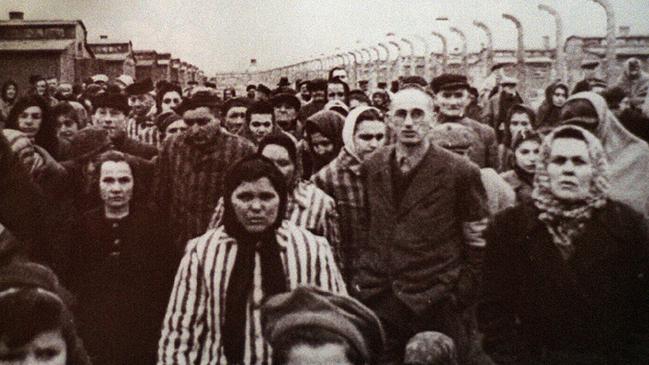
In excess of 1.1 million Jewish people were killed after being captured by soldiers of Nazi Germany, making it the most of any camp during the Holocaust in World War II.
Although most prisoners had been forced onto a death march, the Soviet soldiers were horrified to find the 7,000 left behind and the scale of Nazi crimes. The date is recognised as International Holocaust Remembrance Day.
On January 29, the Sydney Jewish Museum and Australian Association of Jewish Holocaust Survivors will host a commemorative event at a secret location in Sydney’s CBD to be revealed only several days in advance for security purposes.
The event will feature former prime minister John Howard as the keynote speaker and testimonies from Auschwitz-Birkenau survivors Yvonne Engelman and Jack Meister.
A statement by the Sydney Jewish Museum states the commemorative event is especially poignant against a backdrop of anti-Semitism targeting Australia’s 100,000 Jews – which has soared 316 per cent across the country since October 7, 2023.
“At this time of polarisation, many communities are feeling vulnerable and othered,” it stated.
“On this day, we all have an opportunity to act for a better future, where people don’t experience prejudice or persecution because of their identity.
“We will illuminate the stories of survivors and voices of leaders in the wider community, to ensure the lessons from the Holocaust continue to be passed on.”
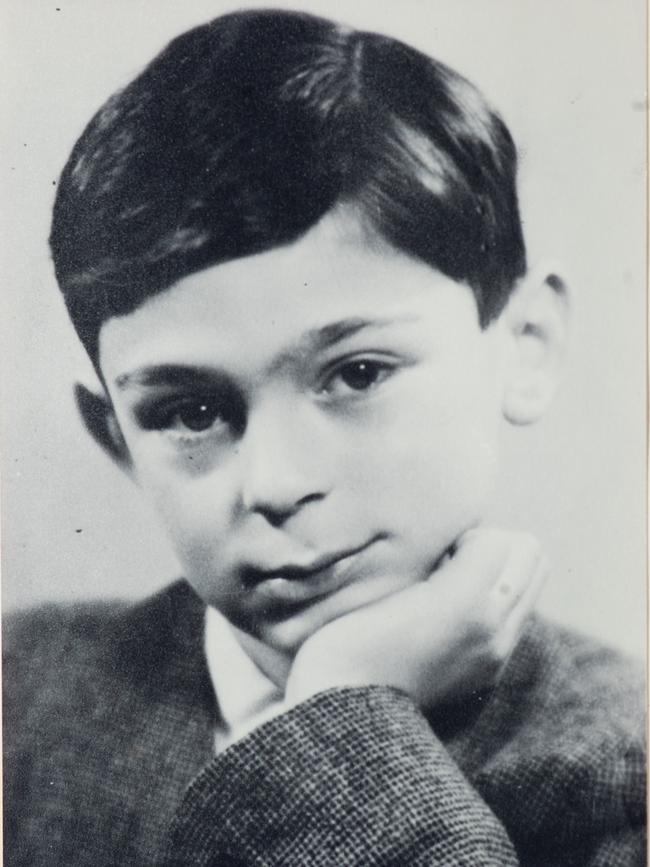
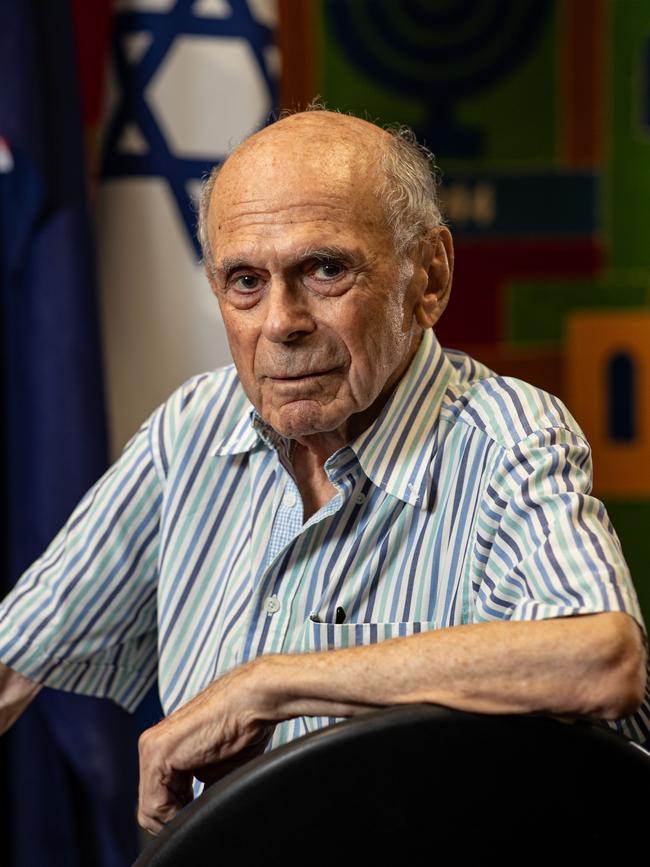
Auschwitz survivor Tomas Fleming, 86, was six when he was captured by the Gestapo in Bratislava.
His father was murdered in Auschwitz, and he was sent with his pregnant mother to the Terezin camp, outside Prague, where 16,000 children were held and only 123 survived.
“I remember it all – every piece of it is burned I my mind. It was harrowing,” said Mr Fleming, who lives in Lane Cove on the Lower North Shore.
“We were taken to Auschwitz in a cattle truck on a train and endured a five-day trip without food or water.
“My father was an agricultural scientist, and his hands were soft, and when he went to Auschwitz, they realised that he couldn’t do hard labour. He was 39 and they put him in the gas chamber and murdered him,” he recalled quietly.
“When my mother and I arrived, we were among 6,000 people destined for ‘processing’ or murder.
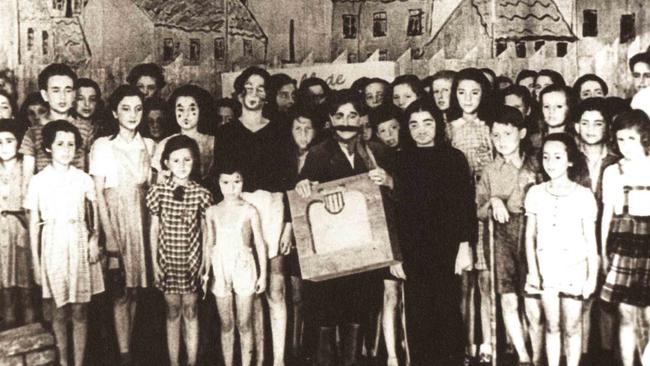
“But a German officer broke down, said he could not take any more into the camp so we were sent to Terezin where my mother gave birth to my brother, Peter.
“The cattle truck we were in was like a sewer, and the ammonia from the poo bucket made your eyes water and there was nothing to eat, nothing to drink.
“The train stopped at Auschwitz for five days. We yelled out if we could have some water, they squirted it into all the carriages, and we put our heads up, and a few drops came into our mouth, and it was just like manna from heaven,” he said.
Terezin camp, where his blue-eyed blond brother Peter was born on February 16, 1945, was liberated on May 9, 1945, and the family returned to Bratislava, where only 11 of his 80 relatives survived.
They emigrated to Australia in 1948 and settled in Sydney.
“My brother was blond and was allowed to survive – I somehow slipped through the cracks,’ he mused.
“In this day and age, it breaks my heart to see what’s going on in Australia. The world wouldn’t allow another Hitler but the stupidity that’s happening, these unintelligent morons putting swastikas on homes and synagogues ... Don’t crucify us again, don’t repeat the hatred learned from grandparents. Australia must combat hatred and live in peace,” he urged.
Holocaust survivor Peter Reismann, 85, co-founded SeaFolly swimwear range after escaping communist Hungary in 1957 and emigrating to Australia to begin a new life.
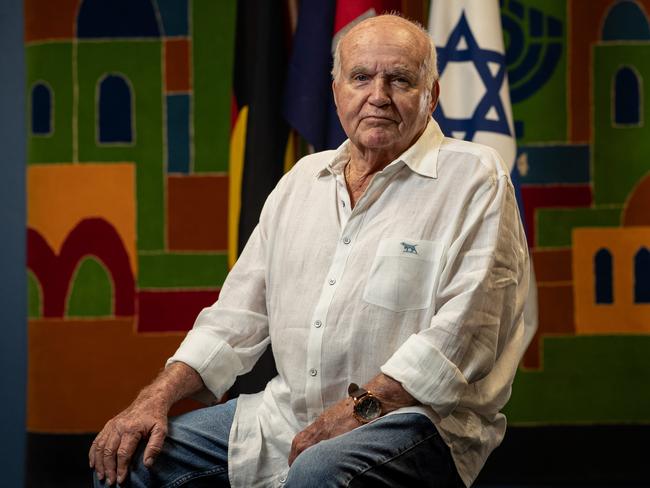
Born in 1939 in Budapest, Hungary, Mr Reismann was four years old and too young to understand why his father had been taken away in the German occupation in 1943.
His mother made plans with a Christian friend to hide in the bunker on her property where they hid for almost a year until liberation.
His mother, Margaret, was pregnant at the time and on January 23 gave birth to his sister. Two days later, Mr Reismann’s family was liberated and, two weeks later, his father miraculously returned.
“Hate is a strong word and a terrible thing between human beings – that’s what created Hitler,” said Mr Reismann, who lives in Randwick.
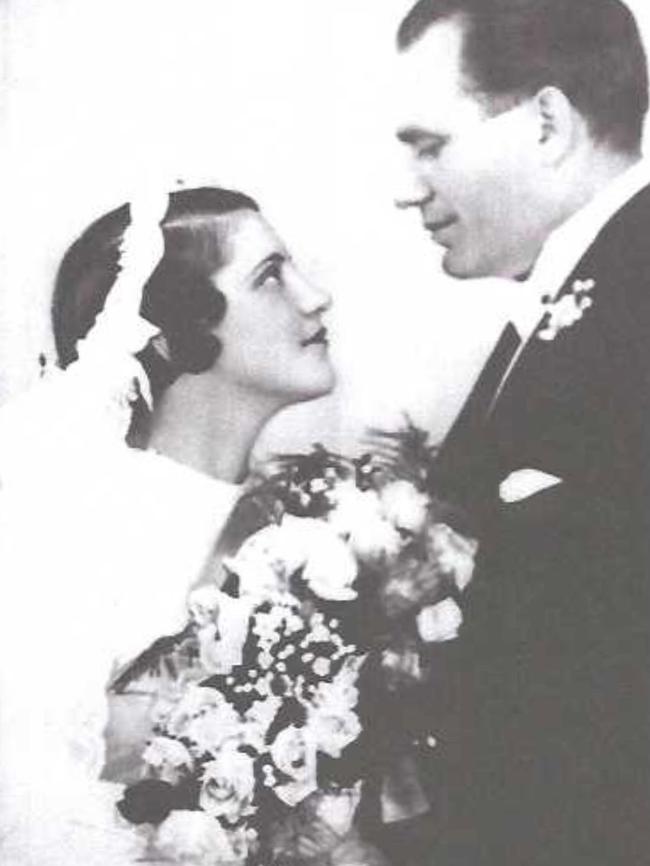
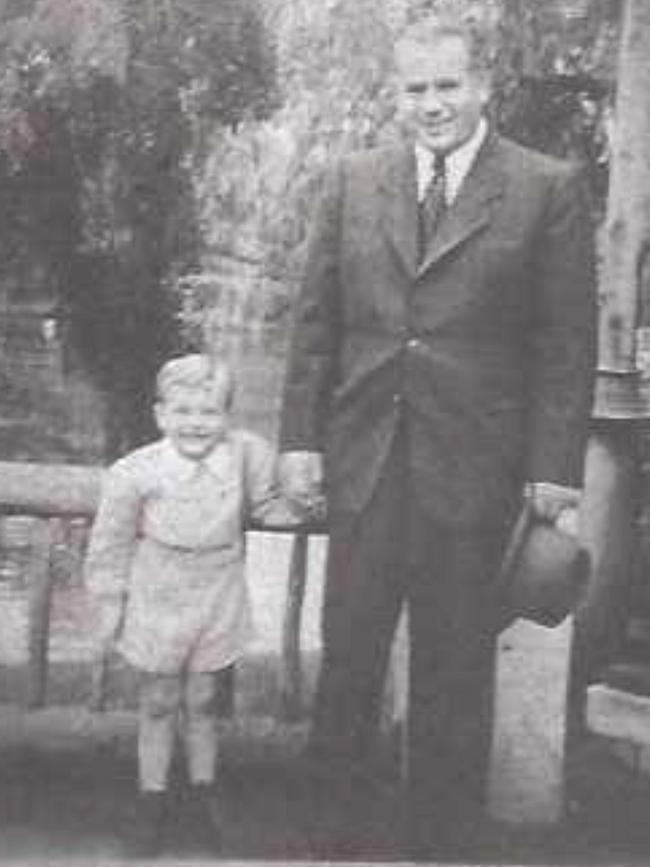
“I chose to escape, and we escaped to Austria, where the Red Cross took charge of us, and about six months later we had an opportunity to leave the Austrian refugee camp.
“I left my family for Australia, the furthest place from Europe, from anti-Semitism,” he said.
“We must work together to stamp out this unnecessary and unbelievable hatred for Jews in Australia.
“People must understand that this should never happen again. Stop the hate, please,” he pleaded.
Do you have a story for The Telegraph? Message 0481 056 618 or email tips@dailytelegraph.com.au



